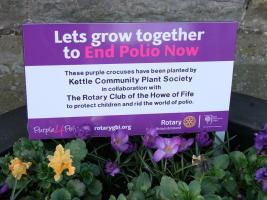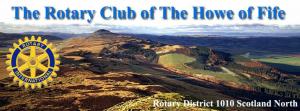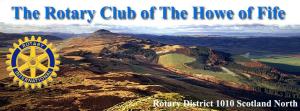Weekly meeting
Tue, Aug 6th 2019 at 5:45 pm - 8:00 pm
Duncan Pickard (Speaker). Welcome team: Robin Rippin (Bott), James Storrar (Grace), Cathy Adamson (VoT & Web report).
Duncan Pickard gave a brief summary of his working life with special emphasis to his career as a farmer since moving to Balmullo in 1992. Prior to this he had pursued various academic/agricultural occupations, including a period with the Mayo Clinic in Rochester, Minnesota.
Straiton Farm in Balmullo has 650 acres and mainly grows wheat, barley, oats, carrots and swedes, supplemented with about 150 Angus cattle and around 650 sheep. It is therefore a very diverse farm, and he regards this portfolio of products as a key to success by smoothing out the peaks and troughs of any particular agricultural sector. Specifically he rejects the accepted accountancy wisdom of identifying the most profitable segment and concentrating on that. Change is inevitable and accountancy will only tell you where you have come from, and not where you are going! Like stocks and shares, in agriculture it is better to have a diverse portfolio to weather the storms of uncertainty.
Duncan provided illustrations of this approach and its success over time from his experiences raising sheep and cattle. It could almost be said that if an accountant told you to do one thing, experience said that you should do the opposite! As he said, “If you want to make a profit from farming, you should go against the accountant’s advice”.
Summarising, Duncan believed that you should never rely on forecasts, especially in a globalised economy, never mind with the added uncertainties of BREXIT. Drastic change is always expensive, and in farming you should make changes slowly and aim for the optimum rather than the greatest yield or profit. In financial terms you should focus on working capital (e.g. livestock and machinery) rather than land and its further improvement.
Duncan’s recipes for success in farming are to acquire land at a reasonable price (which is why he moved to Scotland in the first instance); don’t put all your eggs into one basket (diversify your farm); and, do as much as you can yourself (as labour is expensive).
'What We Do' Main Pages:



